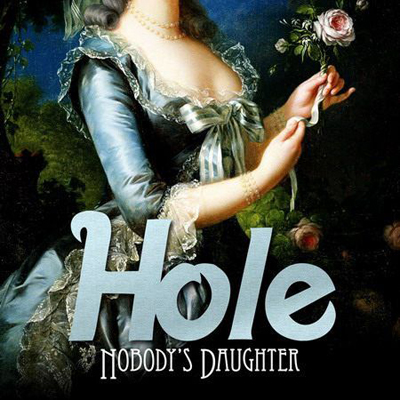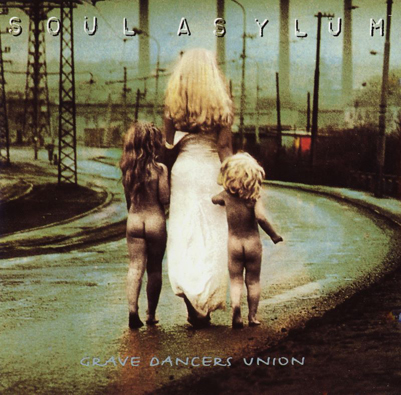MICHAEL BEINHORN
English version of the interview available at bottom of the page.
intervista: Luca Giorietto, collaborazione alla traduzione: Donata Napoli
Michael Beinhorn è il noto produttore musicale americano che ha prodotto molti degli album più famosi degli ultimi decenni per artisti quali: Marilyn Manson, Hole, Red Hot Chili Peppers, Soundgarden, Korn, Soul Asylum, Fuel, Ozzy Osbourne, Social Distortion e molti altri. Questa è l’intervista che ci ha gentilmente rilasciato.
official website: michaelbeinhorn.net
Qual è secondo te la differenza tra essere un produttore oggi ed esserlo nell’epoca in cui internet non era ancora così diffuso?
Non penso che internet abbia influenzato direttamente la produzione musicale. Ha influenzato il modo in cui la musica è distribuita, il che ha a sua volta influenzato la qualità complessiva. Adesso c’è più musica da poter ascoltare, ma gradualmente di inferiore qualità. In questo senso, la produzione musicale è indirettamente coinvolta dal momento che abbiamo meno risorse con cui lavorare a causa degli standard ridotti.
Se non erro la tua carriera è iniziata da musicista con i Material. Come si è sviluppato il tuo interesse per la musica che ti ha portato dalla parte della produzione? Cosa è cambiato nel tempo nel tuo lavoro di produzione?
Nel tempo sono diventato più sensibile alle necessità delle persone con cui lavoro. Questo è molto più di una capacità intuitiva.
Come è stato il tuo primo approccio con i Red Hot Chili Peppers e quale differenza c’è stata nel lavoro per i loro due album di cui ti sei occupato?
Ho incontrato i Red Hot Chili Peppers nel 1987 e puoi leggere alcune cose di questa esperienza nel mio blog. Tra The Uplift Mofo Party e Mother’s Milk sono diventati più famosi e sono cresciuti notevolmente come musicisti. Avendo John Frusciante, hanno cominciato a concentrasi sulla struttura delle canzoni invece di pezzi basati sul groove.
Rispetto a un decennio fa, e grazie all’avvento di internet, hai scelto di produrre band che hai conosciuto anche grazie alla rete? Se si quali e perchè?
Non ho ancora lavorato con band conosciute su internet.
Hai prodotto grandi album di Marilyn Manson, Hole, Aerosmith, Korn, Soundgarden… raccontaci qualche aneddoto particolare associato a ognuno di questi grandi dischi.
Qualsiasi aneddoto delle registrazioni che ho fatto occuperebbe troppo spazio. In ogni caso, alcuni potrebbero essere estremamente imbarazzanti per le parti coinvolte.
Nuovi artisti con cui collaborerai in futuro?
Si, non vedo l’ora di collaborare con nuove band in futuro.
Premettendo l’ovvio cambio totale di line up, quali differenze ci sono tra Celebrity Skin e Nobody’s Daughter? Con quale dei due dischi ti sei trovato più a tuo agio durante la loro realizzazione? Come è stato lavorare con Courtney Love nel 1998 e nel 2009/10?
Per me, Courtney Love è una delle persone più talentuose con cui ho lavorato e sono stato onorato di lavorare con lei per due volte. Le differenze tra i dischi sono soggettive, naturalmente ho completato il lavoro solo su un disco, per cui non posso parlare di Nobody’s Daughter nella sua interezza. È stato più difficile lavorare su Nobody’s Daughter per diverse ragioni, molte delle quali (come lavorare al progetto con Courtney) sono altamente soggettive e personali.
Con quale artista ti sei trovato più coinvolto nel lavoro?
Non sono sicuro di cosa vuoi dire con questa domanda. Se stai chiedendo con quali artisti mi sono trovato più coinvolto, la risposta sarebbe quasi tutti.
Ti è mai capitato di dubitare di un disco che invece si è poi rivelato un successo planetario?
Ero preoccupato per Superunknow (album dei Soundgarden, ndt)) quando fu completato, ma ciò era dovuto soprattutto allo stress.
Tra i vari artisti con cui hai lavorato, quali avevano le idee più chiare in studio ed erano già ben determinati a ottenere un risultato preciso?
Gli artisti con cui ho lavorato che avevano le idee più chiare e la maggiore determinazione sono stati Courtney Love (nel periodo di Celebrity Skin), Marilyn Manson e Chris Cornell. E sono stai quelli di maggiore successo.
Quanto è importante per te l’immagine di un artista abbinata al talento di base? Chi generalmente se ne occupa? Ci sono casi in cui la gestisce e sceglie l’artista stesso?
Riguardo all’immagine di sé (o la percezione che il mondo ha dell’artista), questa è una cosa che riguarda l’artista. E poi i media.
Come scegli i registi dei video per i tuoi artisti?
Mi occupo esclusivamente della creazione e registrazione e non ho nulla a che fare con la scelta dei registi per i videoclip.
Come è stato lavorare ad album divenuti dei veri e propri cult? Hai mai riscontrato molta pressione dalle case discografiche?
Non sono sicuro di cosa tu intenda per “vero cult”. Ho sperimentato molta pressione da parte delle case discografiche e dal management dell’artista. Loro devono fare il loro lavoro, io il mio.
Rimanendo in campo artistico ma diverso: tu ami anche dipingere quando non ti occupi di musica… è molto tempo che ti dedichi alla pittura? Come descriveresti la tua?
Ho del tempo libero per disegnare, benché recentemente stia scrivendo. Il mio lavoro è principalmente fotorealistico, anche se in parte astratto. Molto proviene dallo scarabocchiare. Praticare altre discipline aiuta a completare la persona e la connette più profondamente con qualsiasi cosa faccia.
______________________________________________________________________
ENGLISH
Michael Beinhorn is the famous american musci producer who produced many of the famous albums of the last decades for artists such as: Marilyn Manson, Hole, Red Hot Chili Peppers, Soundgarden, Korn, Soul Asylum, Fuel, Ozzy Osbourne, Social Distortion and many others. He kindly answered our questions in this interview.
What do you think is the difference between being a producer today and in the past when the internet was not so widespread?
I don’t really feel the internet has directly affected music production. It has affected how music is dispensed, which has, in turn, influenced the overall quality of music. Now, there is more music to listen to, but of gradually lesser quality. In this sense, music production is affected indirectly, as we have less resources to work with, due to diminishing standards.
If I remember correctly your career started as a musician for Material. How did your interest in music change, moving to the production side? What has changed over time in your job?
Over time, I’ve become more sensitized to the needs of people I work with. This is more of an intuitive skill.
How was your first meet with Red Hot Chili Peppers and what was the difference between their two albums you worked for?
I met the Red Hot Chili Peppers in 1987 and you can read about some of that experience in my blog. Between The Uplift Mofo Party and Mother’s Milk, they had become better known and had developed considerably as musicians. Having John Frusciante, they also began to concentrate on song structures, instead of groove-based pieces.
In the last decade, thanks to the Internet, have you ever chosen to produce bands you knew through the network? If so, which bands and how did it started?
I haven’t yet worked with any bands I encountered through the internet.
You produced great albums by Marilyn Manson, Hole, Aerosmith, Korn, Soundgarden… tell us some anecdotes related to these great albums.
Any anecdotes from recordings I’ve done would fill up too much space. At any rate, some of them might be extremely embarrassing to the parties involved.
Are you going to collaborate with new bands in the next future?
Yes, I’m looking forward to collaborating with new bands in the future.
Apart from the obvious total change of line up, what are the differences between Hole’s Celebrity Skin and Nobody’s Daughter? Which one of the two records you found yourself more comfortable with during their making? And how was it working with Courtney Love in 1998 and in 2009/10?
To me, Courtney Love is one of the most talented people I’ve worked with and I’ve been honored to do so twice. The differences between the records are subjective of course, I completed work on only one, so I can’t speak to Nobody’s Daughter in its entirety. It was harder working on Nobody’s Daughter for a variety of reasons, most of which (similar to what working with Courtney was like on the project) are highly subjective and personal.
Which artist’s work do you feel more involved with?
I’m not sure what you mean with this question. If you’re asking which artists I’ve felt most involved with, the answer would be nearly all of them.
Did you ever doubt of an album that turned out to be an international hit?
I was worried about Superunknown when it was finished but that was mainly due to exhaustion.
Between the various artists you worked with, who had the clearest ideas and was well determined about the results?
The artists I worked with who had the clearest ideas and the most determination were definitely Courtney Love (during Celebrity Skin), Marilyn Manson and Chris Cornell. They were also the most successful.
How important is the image of an artist connected with the talent? Who usually takes care of the image? Does the artist ever take control himself?
As far as self-image (or the perception the world has of the artist), this is mainly up to the artist. And then, news media.
How do you choose the music video director for your artists?
I am only involved with creating a recording and don’t have anything to do with choosing video directors.
How was it working for albums that became real cult? Have you ever felt a lot of pressure from record companies?
I’m not sure what you mean by “real cult”. I’ve experienced a lot of pressure from record companies and artist management. They have their job to do – I have mine.
Remaining in the art field: you also love to paint when you’re not dealing with music… Is it a lot of time you paint? How would you describe your works?
I have some free time to draw, although I’ve been writing more recently. My work is mainly photorealism, although some of it is abstract. A lot of it comes from doodling. Having other disciplines helps round a person out and connects them more deeply with whatever they do.











